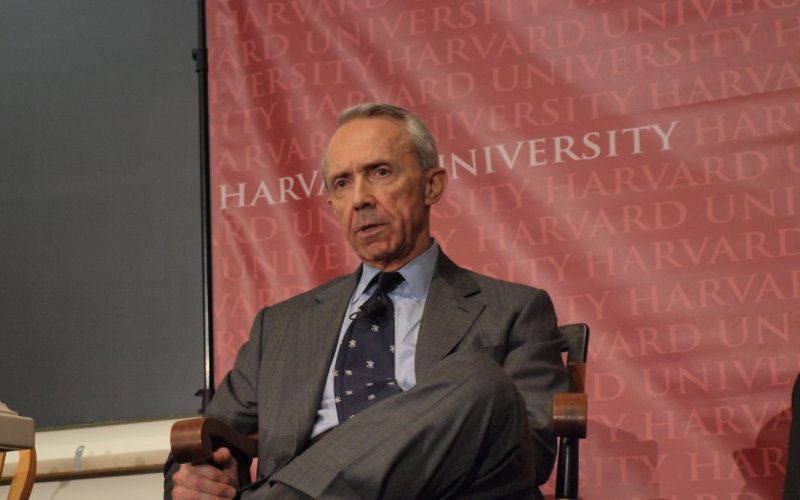Justice David Souter, a former Associate Justice of the United States Supreme Court and lifelong public servant, died Thursday at his home in New Hampshire at the age of 85. Souter, known for his intellectual rigor, humility, and ascetic lifestyle, leaves behind a legacy that defies easy categorization.
Appointed by President George H.W. Bush in 1990, Souter served on the nation’s highest court for nearly two decades, quietly shaping American law through a series of landmark opinions and steadfast commitment to the Constitution.
Early Life and Rise Through the Legal Ranks
Born David Hackett Souter on September 17, 1939, in Melrose, Massachusetts, Souter was raised in rural New Hampshire, a region that would remain central to his identity throughout his life. He attended Harvard College, studied at Magdalen College, Oxford as a Rhodes Scholar, and earned his law degree from Harvard Law School.
Souter’s legal career began in New Hampshire, where he served as a prosecutor, attorney general, and later as a judge on both the Superior and Supreme Courts of New Hampshire. In 1990, he was briefly elevated to the United States Court of Appeals for the First Circuit before his nomination to the Supreme Court.
A Justice Without a Label
When Souter was nominated to the Supreme Court, he was a relative unknown, with little public record on controversial issues. President Bush, seeking a nominee who would not provoke a fierce confirmation battle, described Souter as a judge of “keen intellect and the highest ability.”
Souter’s tenure, however, surprised many. Though appointed by a Republican president, he became known as a moderate and, over time, a reliable liberal voice on the Court, particularly on issues of abortion, church-state separation, and civil liberties.
One of Souter’s most significant contributions came in the 1992 case Planned Parenthood v. Casey, where he joined Justices Kennedy and O’Connor in a controlling opinion that reaffirmed the central holding of Roe v. Wade while allowing for certain state restrictions. Souter’s nuanced approach to precedent and his eloquent defense of judicial restraint became hallmarks of his jurisprudence.
He also played a pivotal role in the contentious Bush v. Gore decision in 2000, siding with the minority who favored allowing the Florida presidential election recount to continue. The majority’s decision effectively handed the presidency to George W. Bush-a moment that reportedly left Souter deeply disillusioned.
Personal Eccentricities and Life Beyond the Bench
Souter’s personal life was as understated as his public persona. A lifelong bachelor, he was known for his frugal habits, daily lunch of yogurt and a whole apple, and preference for handwritten correspondence over email or cellphones.
He lived simply in his beloved New Hampshire, often hiking, attending local events, and even meeting local politicians at the town dump. Souter never married, though he was once engaged, and was described by friends as shy but deeply engaged in his community.
His modesty extended to his finances; despite a long career in public service, Souter’s wealth grew only through prudent investment in a New England bank. He never unpacked his Washington apartment, preferring the mountains and quiet of New Hampshire to the capital’s bustle.
A Champion for Civics and the Constitution
After retiring from the Supreme Court in 2009, Souter returned to New Hampshire, where he continued to serve on the First Circuit Court of Appeals and became an outspoken advocate for civics education.
He warned of the dangers of civic ignorance, arguing that democracy cannot survive without an informed electorate. Souter’s warnings about the decline of civics education were prescient, and he worked with local organizations to promote constitutional literacy among young Americans.
Tributes and Legacy
Chief Justice John Roberts described Souter as a man of “uncommon wisdom and kindness,” noting his significant contributions to the Court and the country. Souter’s legacy is that of a jurist who resisted ideological labels, valued precedent and reasoned debate, and remained steadfastly committed to the ideals of American democracy. He will be remembered not only for his legal opinions but for his humility, integrity, and devotion to public service.
A Last word in his respect
Justice Souter’s passing marks the end of an era for the Supreme Court. His life serves as a reminder that the most profound influence can come from those who work quietly, guided by principle rather than partisanship.
As the nation reflects on his contributions, Souter’s commitment to the Constitution and to the education of future generations stands as a testament to the enduring power of thoughtful, principled leadership.





